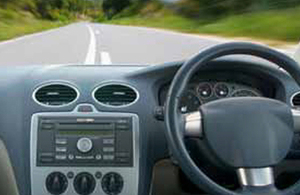Driverless cars: 4 cities get green light for everyday trials
Driverless cars: how would they fit into everyday life? 4 cities in the UK have been chosen to find out.

Driverless cars will be tested in 4 UK cities to see how they fit in with everyday life
£10 million of funding from Innovate UK has given the green light for testing innovative driverless cars in the real world.
Chancellor of the Exchequer George Osborne announced the funding today (Wednesday 3 December) as part of the government’s Autumn Financial Statement.
The following 4 cities will run formal trials that will last between 18 and 36 months from January 2015:
- Greenwich, South East London
- Milton Keynes and Coventry (working together as one project)
- Bristol
Testing driverless cars in a real-world environment will help lead to greater levels of understanding of these vehicles. It will also allow the public to accept how the vehicles will fit into everyday life.
The funding comes through our competition, Introducing driverless cars to UK roads. The aim is to establish the UK as the global hub for the research, development and integration of driverless vehicles and associated technologies.
Nick Jones, lead technologist for the low carbon vehicle innovation platform at Innovate UK, said:
Cars that drive themselves would represent the most significant transformation in road travel since the introduction of the internal combustion engine and at Innovate UK, we want to help the UK to lead the world in making that happen.
There are so many new and exciting technologies that can come together to make driverless cars a reality, but it’s vital that trials are carried out safely, that the public have confidence in that technology and we learn everything we can through the trials so that legal, regulation and protection issues don’t get in the way in the future.
See our other plans for transport in 2014-15
Updates to this page
-
Detail about projects removed as already published in the Innovate UK projects database at https://interact.innovateuk.org/projects
-
First published.